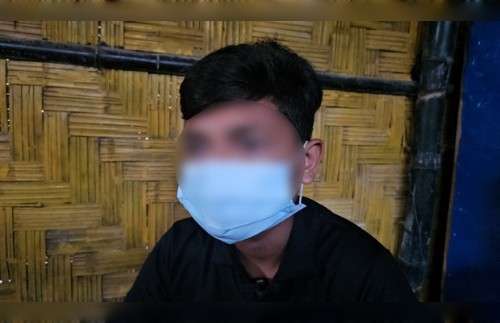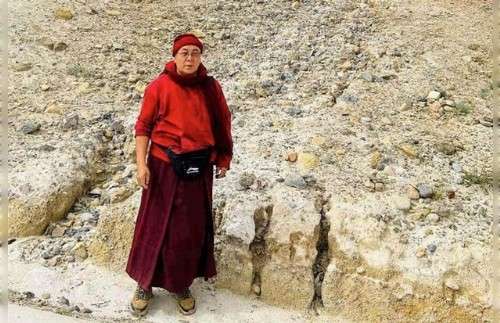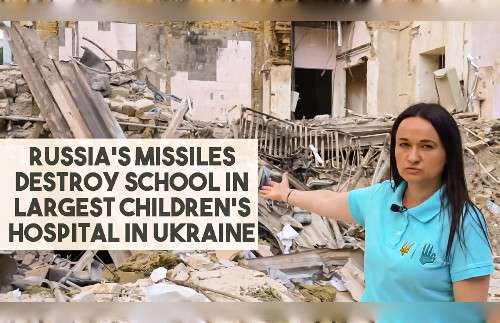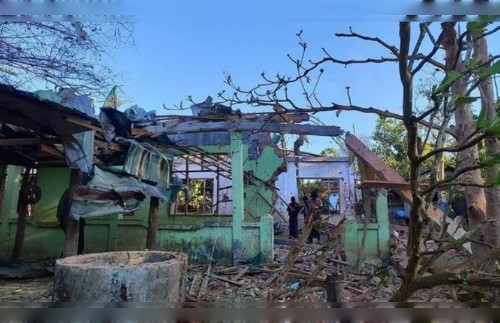Reporter Arooj Iqbal was shot dead in the head in November 2019 in Lahore, eastern Pakistan. Reporters Without Borders (RSF) followed in his footsteps, questioning his family, colleagues and the police, in an attempt to shed light on this dark affair which led to total impunity, revealing customs from another time.
She wanted to be the first Pakistani journalist to start her own newspaper. Her dream was shattered, shattered, in the most violent way: Arooj Iqbal will ultimately go down in Pakistani history as the first female journalist to be murdered for her work.
A few hours before the release of the first issue of Choice , the local publication she had just founded, the lifeless body of the young 27-year-old was found on November 25, bathed in a pool of blood, in a street of Lahore, the megalopolis of eastern Pakistan. The main suspect in the journalist’s assassination to date is her ex-husband.
“The murder of Arooj Iqbal is a challenge for all Pakistani citizens , notes Iqbal Khattak, RSF representative in Pakistan, who conducted the field investigation. This case resonates as a classic case in this country where the poor see deprived of justice. I think this is a collective failure on the part of our society, which is proving unable to do justice for the bereaved family of the journalist. “
Great insecurity
“The savage assassination of Arooj Iqbal is symptomatic of the great insecurity in which women journalists must work in Pakistan ,” notes Daniel Bastard, head of RSF’s Asia-Pacific office, who coordinated this research work. Dependence on their male superiors, contempt, threats, violence… It is a daily struggle for them. Due to the shocking impunity surrounding this affair, we are calling on the highest judicial authorities in the country and denouncing practices from another time. If nothing changes, we will have to expect new feminicides among Pakistani reporters. ”

RSF met Tahira Begum , Arooj Iqbal’s mother, at the family home, in the courtyard of a small two-room house located in the labyrinth of Lahore Old Town. “Arooj was clearly targeted for her journalistic work ,” she explains straight away. The last time we spoke, she told me everything was ready for her to open her office the next day. Unfortunately, she was not so lucky, she was murdered just before. ”
It was Arooj’s brother, Yasir Iqbal , who received the tragic phone call announcing the death of his sister, who had been shot in the head on November 25, 2019 at 10:44 p.m. The next morning, he lodged a complaint with the Qilla Gujar Singh police station, the closest to the scene of the tragedy.
Violence and harassment
According to him, the perpetrator of the murder is none other than Arooj’s ex-husband, Dilawar Ali , himself the owner of a local newspaper specializing in various facts, Anti-crime , to which the young journalist had collaborated. in the past. “He wanted her to give up the idea of starting her own newspaper,” explained Yasir Iqbal, whom RSF interviewed a week after the murder. In his statement to the police, the victim’s brother is categorical: “I am 100% sure that Dilawar killed my sister or had her murdered.”
In fact, three days before his death and at the same police station, Arooj Iqbal had filed a complaint against Dilawar Ali for beatings and ill-treatment. The record is a long litany of harassment and violence perpetrated against the journalist. The next day, November 23, Arooj Iqbal was visiting his family to express his fears, after death threats made against him by her ex-husband.

Arooj Iqbal had worked for a year and a half for the Anti-crime newspaper , before agreeing to marry its director. According to Arooj’s mother, his ordeal began the day after this disastrous marriage, since Dilawar Ali was violent and “a very bad husband” .
Sponsor
Despite all these elements, the man was not worried: no arrest or charge of any kind. He provided the police with an alibi, stating that he was in the Maldives the night Arooj Iqbal was murdered and that he did not return until the next day, November 26.
A scenario which, however, does not exclude the fact that he could very well have ordered the murder. “It is quite possible that such a plot was put in place ,” remarks police inspector Muhammad Iqbal , in charge of part of the investigation. Asked by RSF about his experiences in criminal matters, the police officer confirms that he “has succeeded, in the past, in determining that defendants went abroad, or even were arrested for petty crimes, in order to fabricate a fake alibi.”
RSF presented the minutes of Arooj Iqbal’s murder complaint to another police investigator familiar with this type of case, now retired, and who prefers to speak anonymously. According to him, the journalist “was clearly seen as a threat by some. She was presumably in possession of secrets which, if made public, could seriously damage that person’s reputation. ”
And the police officer to cross this hypothesis with the fact that Arooj Iqbal would enter into direct competition with her ex-husband – who was also his ex-editor-in-chief – by launching his own platform.
Endless threats to the family
In short, a more than convincing bundle of suspicions which leaves little doubt as to the motive for the murder and, therefore, to the guilt of Dilawar Ali as its chief instigator. But man is obviously powerful enough to escape ordinary justice.
Indeed, shortly after he filed a murder complaint, Arooj’s brother Yasir Iqbal began to be the target of warnings. “I was constantly receiving threats [from] Dilawar’s clan ,” he recalls. My little brother was even stopped on a road by several henchmen to send me the message that if I did not withdraw my complaint in this case, I would have to suffer the worst consequences. ”
The persistence of these warnings finished scaring Tahira Begum, the mother of the siblings. The quest for justice for her daughter’s murder has turned into a nightmare. “We were always receiving new threats ,” she explains. I was very scared, I didn’t want another tragedy to hit my family. The period following the murder created a lot of stress and made me heart attack. ”
Police accomplice
In Punjab, the province of which Lahore is the capital, the feudal system continues to regulate many aspects of social life. Political elites can act above the law with the complicity of a police force that is often said to be corrupt. And indeed, in the complaint she had filed three days before she died, Arooj Iqbal had accused some police officers of “protecting the interests of Dilawar” . As for those who are at the bottom of the social ladder, they are often reduced to suffering the consequences of the acts of the powerful. In this respect, the fate reserved for the Iqbal family is edifying.
To escape possible prosecution following Arooj’s murder, Dilawar Ali has developed a double strategy, sometimes terrorizing the brothers and the journalist’s mother with death threats, sometimes using his connections in parliament: he has in fact approached a member of the provincial parliament, so that he can act as matchmaker to influence the family and convince them to accept an agreement outside of any criminal procedure.
Parallel justice
It was a certain Chaudhry Shabbaz who played this role. He did so using the “panchayat”, a sort of local council supposed to settle civil conflicts – a system usually used by the rich and powerful to evade criminal law.
Things did not drag on: a month and a half after the murder, on January 15, 2020, an agreement was signed by Arooj’s brother, Yasir, by his mother Tahira Begum, and by the main defendant, Dilawar Ali. RSF was able to consult this document: “I swear that party n ° 2 – Dilawar Ali – is considered guilty by myself and my family. He killed or had my sister murdered . According to the panchayat, Party # 1 – Yasir Iqbal and his family decided that they would grant forgiveness to Dilawar Ali in order to obtain mercy from God. ” Signed: Yasir Iqbal.
“Totally vulnerable”
In the penal law resulting from the Islamic tradition to which the panchayats refer, conflict resolution is done by the Qisas and the Diyat: the Qisas is to be understood as retributive justice, an “eye for an eye, tooth for a tooth”; the Diyat, for its part, represents financial compensation, paid by the culprit to the victim or his family.
It was this form of arrangement that Yasir Iqbal was forced to accept. In the end, the price of the murder of his sister amounts to one million rupees, or just over 5,200 euros – sum he actually received from the hands of Dilawar Ali. “Why did we sign this agreement? Dilawar imposed such pressure that we found ourselves totally vulnerable , laments Yasir, who insists he signed this forgiveness agreement with great reluctance. And the [judicial] system has proven to be largely ineffective [in dealing with our complaint]. ”
When the fate of a murdered journalist is simply equated with an honor killing that results in a pecuniary settlement, what role can the legitimate authorities play? In order to defend women victims of violence at home and at work, the provincial government of Punjab has set up a Women’s Development Department (WDD).
Powerlessness of the authorities
“We are an observatory that ensures the protection of women’s rights,” explains Asif-ur Rehman , deputy secretary general of WDD. But, questioned by RSF on the fate of Arooj Iqbal, the official admitted to never having heard of it.
Asked whether his institution could take up this case to bring a civil action, Asif-ur Rehman admits his powerlessness: “We do not have a mandate to launch a procedure , he explains. If no complaint formally lodged by the injured party or his representative remains, we cannot act. ”
Professional isolation
On the side of local journalists’ defense organizations, the plight of Arooj Iqbal elicited little or no reaction – his mother confirms: “Our family received no support from the journalist community, none!” , she repeats, dejected.
“We did not give Arooj’s murder the coverage it deserved,” concedes Qamar Bhatti , president of the Punjab Journalists Union. He also acknowledges that neither the province’s journalists’ unions nor its press clubs have ever taken specific measures to protect women journalists.
It seems that Arooj Iqbal was also the victim of his relative isolation within the profession. She was probably unaware of the importance of joining a union or press club, as is usually the case with male journalists in Pakistan.
Feeling of panic
This affiliation generally makes it possible to mobilize peers and to put pressure on the authorities when the first threats appear. “It was undoubtedly a mistake on his part not to have approached it to seek support,” remarks independent investigative journalist Afifa Nasar Ullah .
“I don’t think Arooj has taken the security training that could have enabled him to identify the first signs of threats and better protect himself ,” continues the journalist. Besides, I don’t think any female journalist affiliated with a press club has done so. ”
Afifa Ullah believes that “Arooj’s murder has spread a real sense of panic and insecurity among the women journalists based in Lahore and the dozens of them who work in the Punjab”.
Tiny minority
In fact, women still represent a tiny minority within the profession in Pakistan. According to information collected by RSF, they are barely 750 in a community which has 19,000 professionals – or 4%. Thus, their specific rights are largely ignored.
“This is absolutely unacceptable , says Pakistani media specialist Adnan Rehmat . Women journalists should be provided with adequate technical resources to guarantee their physical and online security, through training particularly adapted to their specific needs. ”
According to him, this type of training should be part of a broader strategy of networking and solidarity between women journalists. “In several cities, we are already seeing women journalists creating informal networks and sharing information through the constitution of WhatsApp groups, for example,” he adds.
Huge site
“What we need now is a formal and permanent structure that would bring together all the women journalists in the country – the goal being that they are able to maintain professional and collective support systems including , among others, mechanisms for filing complaints, alerts and rapid response to a threat, documentation, support in psycho-social support, and even the establishment of financial support in order to benefit from legal aid ” , adds Adnan Rehmat. In other words, the site is absolutely huge for Pakistani journalists.
In the small courtyard of Arooj’s family home, her mother remembers the motivations that prompted her daughter to become a journalist: “ She always liked to learn, she threw herself into studies, while working for side, sometimes even helping me around the house. Founding his own newspaper was his dream. ”
A dream that was shattered by her professional entourage: “She had already been physically attacked twice , recalls Tahira Begum. Once she even told me that she escaped death. I asked her to change jobs, but she reassured me by telling me that nothing would happen to her. ”
This sentence, Arooj Iqbal repeated it on November 23. Two days later, she was shot in the head.
Pakistan ranks 145th out of 180 countries in the 2020 edition of the World Press Freedom Index published by RSF.
Copyright ©2016, Reporters Without Borders. Used with the permission of Reporters Without Borders(RSF), CS 90247 75083 Paris Cedex 02 https://rsf.org
Escaping from Scam Center on Cambodia’s Bokor Mountain
UN Security Council Meets to Discuss Children and Armed Conflict
10 Shocking Revelations from Bangladesh Commission’s Report About Ex-PM Hasina-Linked Forced Disappearances
Migration Dynamics Shifting Due to New US Administration New Regional Laws
UN Security Council Meets to Discuss the Maintenance of International Peace and Security and Artificial Intelligence
Winter Brings New Challenges for Residents living in Ukraine’s Donetsk Region
Permanent Representative of Israel Briefs Press at UN Headquarters
Hospitals Overwhelmed in Vanuatu as Death and Damage Toll Mounts from Quake
Subscribe Our You Tube Channel
Fighting Fake News
Fighting Lies




















